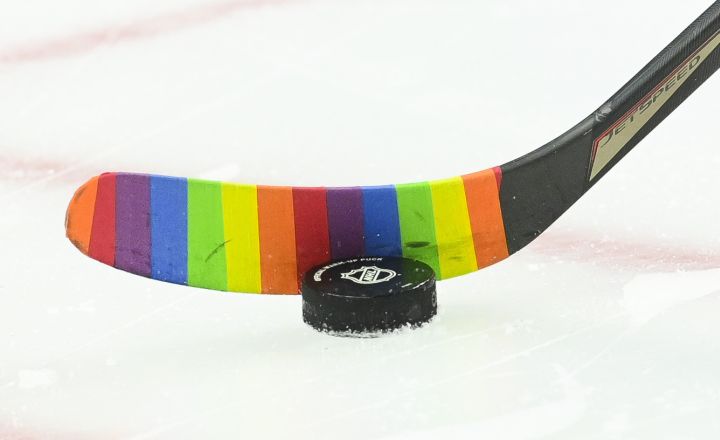
The NHL’s recent ban on pride tape has sparked controversy and raised concerns about the league’s commitment to inclusivity and diversity. The You Can Play organization, a prominent advocate for LGBTQ+ inclusion in sports, argues that this decision diminishes visibility and sends a negative message to the LGBTQ+ community.
Pride tape, a colorful adhesive tape that players use on their hockey sticks to show support for LGBTQ+ rights, has become a symbol of inclusivity in the NHL. It was first introduced in 2016 by the You Can Play organization in collaboration with the NHL and the NHL Players’ Association. Since then, many players have proudly displayed the tape during games, demonstrating their support for LGBTQ+ teammates and fans.
However, the NHL recently announced that pride tape would no longer be allowed on players’ sticks during games. The league cited concerns about the tape affecting the performance of players and potentially leaving residue on the ice. While these reasons may seem valid on the surface, critics argue that they are merely excuses to mask underlying issues.
The You Can Play organization strongly disagrees with the NHL’s decision, stating that it hampers the visibility of LGBTQ+ individuals in the sport. By banning pride tape, the league is effectively silencing an important message of acceptance and support. The organization argues that the NHL should be actively promoting inclusivity and diversity, rather than hindering it.
Visibility is crucial for marginalized communities, including LGBTQ+ individuals. Pride tape serves as a powerful symbol that shows LGBTQ+ players and fans that they are seen, heard, and supported within the hockey community. It sends a message that everyone is welcome in the sport, regardless of their sexual orientation or gender identity.
The ban on pride tape not only diminishes visibility but also raises questions about the NHL’s commitment to fostering an inclusive environment. While the league has made progress in recent years by implementing initiatives such as Hockey Is For Everyone, this decision seems contradictory to those efforts.
It is important for sports organizations to actively promote diversity and inclusion, as they have the power to influence societal attitudes and break down barriers. By allowing pride tape, the NHL would be sending a clear message that it stands with the LGBTQ+ community and is committed to creating a safe and welcoming space for all.
The You Can Play organization is urging the NHL to reconsider its ban on pride tape and to engage in a meaningful dialogue about the importance of visibility and inclusion. They argue that by embracing pride tape, the league can demonstrate its commitment to equality and set an example for other sports organizations to follow.
In conclusion, the NHL’s ban on pride tape has sparked criticism from the You Can Play organization, who argue that it diminishes visibility and sends a negative message to the LGBTQ+ community. Pride tape serves as a powerful symbol of inclusivity, and its absence on players’ sticks during games hampers the progress made towards creating an inclusive environment in hockey. The NHL should reconsider its decision and actively promote diversity and acceptance within the sport.

